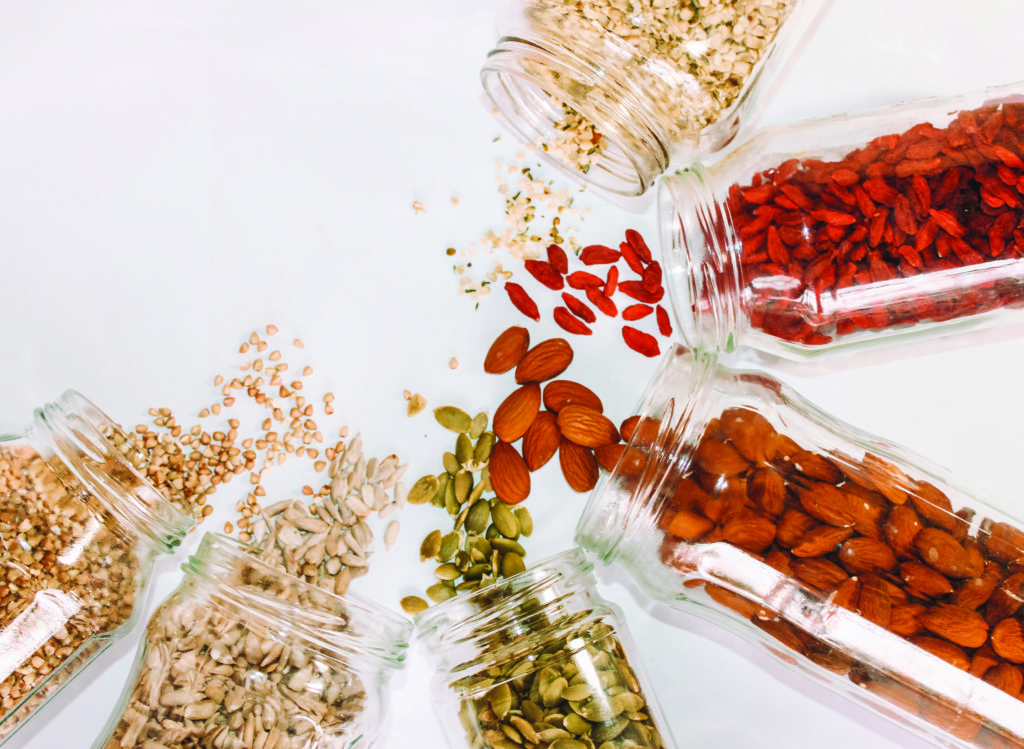
Researchers from Lancaster University in the U.K. analyzed the reasons why people eat meat, and found that 90 percent of them professed to the “four Ns” of meat-eating: They consider eating meat to be “necessary, natural, normal and nice.” Social psychologist Melanie Joy coined the word “carnism” to describe the eating of meat as the corollary to the word vegan—both are simple descriptors of the basis of each person’s diet, but it highlights how vegans are considered the oddity. “People are socialized not only to believe that eating animals is normal, natural and necessary, but that not eating animals is abnormal, unnatural and unnecessary,” she says. Let’s look at the four Ns.
Is meat necessary? Processed meat has been designated a carcinogen by the World Health Organization, and diets that are rich in meat are associated with increased rates of heart disease and other major chronic diseases. We can digest meat—but we are also able to digest paper, mud and other non-nutritive-yet-still-edible substances. Bottom line: We can get all the nutrients we need from plants—and we can supplement for the very few nutrients that come in short supply.
“There’s no convincing literature saying that modern societies get better when people eat more meat,” says Dr. David Katz, founding director of the Yale-Griffin Prevention Research Center. But, he adds, “there’s overwhelming evidence to say that the prevailing ailments in modern societies get better when people eat more vegetables, fruits, whole grains, beans, lentils, nuts and seeds.” Large populations of plant-based eaters are among the healthiest on the planet.
Is meat natural? “You can’t say that humans are adapted to eat grain-fed beef, let alone pepperoni,” says Katz. “There was no Paleolithic pastrami.” If someone is invoking a native diet as a reason to eat meat, Dr. Katz would like to issue a challenge: “Get a bow and arrow or a spear, and get out there, go the miles, wait in the woods, and have venison for dinner tonight.”
Is meat normal? We’ve been raised to think that meat is “the point” of the meal—the sun around which all the (usually vegetable-based) side dishes orbit. But if we step back and think, we can recognize that this is just our mental habit. We can consciously redefine what “normal” is at any time. Melanie Joy says that meat is just accepted as a given, so the idea of eating meat has become invisible, and the choice not to eat meat is seen as the exception: “There’s vegans and vegetarians, and then there’s everyone else.” But for most of the world, for most of human history, eating meat at this level was not normal. At most, it was eaten sparingly—as Dr. Mark Hyman refers to it, as “condi-meat”—akin to a seasoning on top of a plant-based meal rather than the foundation of the meal itself. Unfortunately, our “normal” consumption of meat is becoming the norm around the world—and the trajectory is truly unsustainable.

Is meat nice? We might like the sensation of biting down into a burger—that might feel satisfying and familiar, and “nice.” But with all the new advancements in meat analogues—such as Alpha Foods, Hungry Planet beef, and burgers from Impossible Foods and Beyond Meat—we’re getting closer and closer to that mouthfeel with every iteration. Perhaps, when weighing it against all the other mitigating factors, it’s time to say that feeling is not quite equivalent to the destruction it represents. We are compassionate people who have been taught to dissociate from the cow that burger came from. We don’t like to think about the way animals are raised because, no, it really isn’t nice. “The way we generate meat today is cruel and unbelievably costly to the environment,” says Dr. Katz. “And because it adulterates the meat and changes the nutritional composition, it makes meat bad for health, too.”
Instead of thinking about OMD as “giving up” animal products for one meal a day, think about everything you get as you eat a more plant-based diet—a wider variety of colors, flavors and textures, and an endless world of experimentation and food combinations; guilt-free and automatic weight loss and/or management; all that smooth skin and shiny hair and those sparkling eyes; an endless supply of vitamins, minerals, and soluble and insoluble fiber; and all those glorious antioxidants that can tamp down runaway inflammation and keep your innards humming along happily. (Did I mention hot sex, cool planet?)
Suzy Amis Cameron is a noted environmental advocate, former actor and model, and founder of MUSE School with her sister Rebecca Amis. She has also founded several environmental organizations, including Cameron Family Farms (with her husband, director James Cameron), Plant Power Task Force, Food Forest Organics, and Red Carpet Green Dress



